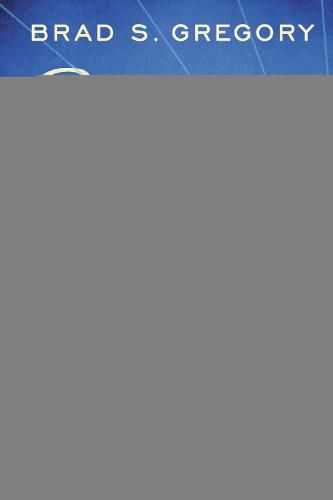Readings Newsletter
Become a Readings Member to make your shopping experience even easier.
Sign in or sign up for free!
You’re not far away from qualifying for FREE standard shipping within Australia
You’ve qualified for FREE standard shipping within Australia
The cart is loading…






For five centuries, Martin Luther has been lionized as an outspoken and fearless icon of change who ended the Middle Ages and heralded the beginning of the modern world. In Rebel in the Ranks, Brad Gregory, renowned professor of European history at Notre Dame, recasts this long-accepted portrait. Luther did not intend to start a revolution that would divide the Catholic Church and forever change Western Civilization. Yet his actions would profoundly shape our world in ways he could never have imagined.
Gregory analyzes Luther’s inadvertent role in starting the Reformation and the epochal changes that followed. He reveals how Luther’s insistence on the Bible as the sole authority for Christian truth led to conflicting interpretations of its meaning-and to the rise of competing churches, political conflicts, and social upheavals. Ultimately, he contends, some of the major historical and cultural developments that arose in its wake-including the Enlightenment, individual self-determination and moral relativism, and a religious freedom that protects one’s right to worship or even to reject religion-would have appalled Luther: a reluctant revolutionary, a rebel in the ranks, whose goal was to make society more Christian, yet instead set the world on fire.
$9.00 standard shipping within Australia
FREE standard shipping within Australia for orders over $100.00
Express & International shipping calculated at checkout
For five centuries, Martin Luther has been lionized as an outspoken and fearless icon of change who ended the Middle Ages and heralded the beginning of the modern world. In Rebel in the Ranks, Brad Gregory, renowned professor of European history at Notre Dame, recasts this long-accepted portrait. Luther did not intend to start a revolution that would divide the Catholic Church and forever change Western Civilization. Yet his actions would profoundly shape our world in ways he could never have imagined.
Gregory analyzes Luther’s inadvertent role in starting the Reformation and the epochal changes that followed. He reveals how Luther’s insistence on the Bible as the sole authority for Christian truth led to conflicting interpretations of its meaning-and to the rise of competing churches, political conflicts, and social upheavals. Ultimately, he contends, some of the major historical and cultural developments that arose in its wake-including the Enlightenment, individual self-determination and moral relativism, and a religious freedom that protects one’s right to worship or even to reject religion-would have appalled Luther: a reluctant revolutionary, a rebel in the ranks, whose goal was to make society more Christian, yet instead set the world on fire.